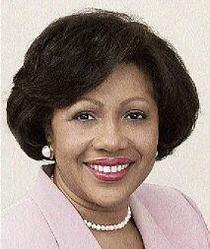
Sherry-Ann Mcgregor
After 13 years of litigation, which included two trips to the Privy Council (PC), the battle between former spouses, Lascelles and Audrey Chin, over ownership of Lasco Foods Ltd., appears to be at an end.
While the October 24 decision of the PC may be hailed for bringing the matter to an end, the judgement covered no new ground. The law lords actually ruled that they would not disturb the declaration that Mrs. Chin held a 50 per cent share in the company, because that decision had already been made by the Supreme Court, based on its assessment of the facts, and affirmed by the Court of Appeal. This ruling finds support in the firmly established legal principle that the Privy Council will not, except in exceptional cases, differ from concurrent findings of fact made by two lower courts. In effect, the PC found that this was not a case in which a finding of facts by the lower courts should be disturbed.
Position cemented
The pivotal decision in the matter had been made in 2001 by Justice Neville Clarke (deceased), who preferred the evidence of Mrs. Chin over that of Mr. Chin and his lawyer. The 2005 decision of the Court of Appeal cemented that position, when the appeal by Mr. Chin was unanimously dismissed.
When the case was first heard by the PC, it was remitted for retrial because it was felt that the local courts had not been in a position to make adverse findings of fact against Mr. Chin when the evidence to support those findings had not been tested by cross-examination. The PC made it clear that it is unsafe to make findings of fact solely on the strength of disputed affidavit evidence.
As a practical matter, the case reminds us that when married couples become engaged in business enterprises, the same level of prudence is to be exercised as when strangers become business partners. The reality is that the failure of the marriage often leads to a re-assessment of the business relations, and one spouse usually demands substantial payment for his or her share of the business. In the absence of agreement and adequate records, that exercise may lead to protracted litigation and significant expense.
Prenuptial agreements


( L - R ) Audrey Chin, Lascelles Chin - file photos
Cases such as this one certainly justify the change in the law which gave legitimacy to prenuptial agreements under the Property (Rights of Spouses) Act in 2006. It is now moot, but one wonders whether many years of litigation and what must now be millions of dollars in legal fees could have been avoided if Lascelles and Audrey Chin had signed a prenuptial agreement?
It is often said that "a word to the wise is sufficient." One of the most vocal supporters of the need for prenuptial agreements is the twice-divorced Donald Trump, who chided Sir Paul McCartney for putting love ahead of money during his brief marriage to Heather Mills.
Perhaps more couples who are contemplating marriage will heed the subtle warnings emanating from this case and organise their affairs in a manner which may allow them to escape some of the collateral damage which results from separation, divorce and the surrounding disagreements.
Sherry-Ann McGregor is a partner and mediator with the firm Nunes, Scholefield, DeLeon & Co. Send feedback and questions to lawsofeve@ yahoo.com or Lifestyle@ gleanerjm.com.
